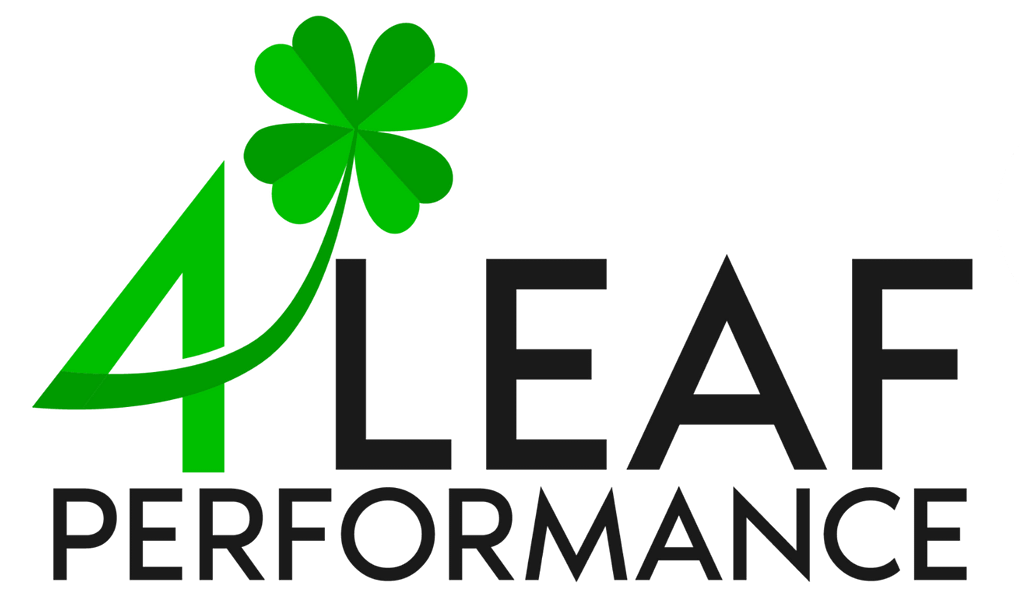Embracing consistency can flip the script towards success. It is crucial for any business aiming to thrive and to avoid common pitfalls and shape the foundation of successful business practices. Whether you’re a budding entrepreneur or a seasoned business owner, understanding the importance of consistency will give you a competitive edge in achieving sustained business success.
Building Consistency is the Key to Business Success
Join Andrew Lamb and Luke Dillon in this riveting session from 4 Leaf Performance, where they delve into the art of cultivating habits and routines that drive success. Whether you’re an executive, a business owner, or someone seeking personal growth, this conversation offers invaluable insights into making consistency your superpower. Discover how small, incremental changes can lead to significant long-term impacts, both professionally and personally.The Role of Habits and Routines in Achieving Business Success
Understanding why consistency is important in business begins with a close look at the foundation of all daily operations: habits and routines. As we dive into the influence of these practices, Andrew Lamb and Luke Dillon share their professional insights, underscoring how fundamental habits are to both personal and professional success.
Luke Dillon emphasizes the significance of time management, a critical aspect of small business management,
“I think how people use their time is always indicative of their habits. From the time you get up in the morning and your activities and habits that set you up for your day, I think that normally will give you an indication of what’s important to the individual. And it’ll also show you where they are in the business.
One of the areas that I do delve into when I start with either a new executive, new executive team, or a business owner is to say, okay, walk me through your average day. Where are you spending time? What’s transpiring consistently each day, each week?
Examining daily routines can offer profound insights into the overall health and potential of a business. Personal discipline reflects in one’s professional life, as Luke further shares,
Generally, I find that for people who have those disciplines in place in their private lives, you’ll see that their business is similar. Their meeting cadence is consistent and how they handle things that come up in the business has a system or formula that they work with.”
Through years of experience and numerous client interactions, Luke puts forward invaluable business tips for anyone looking to optimize their systems and grow their business. As Andrew and Luke suggest, the reasons businesses fail often tie back to a lack of consistent practices.
Start by examining and optimizing your daily habits. By focusing on developing consistent habits, entrepreneurs and business leaders can ensure their business strategies are executed effectively, leading to improved outcomes and stability.
Time Management Insights for Effective Business Operations
A crucial element in understanding why consistency is important is mastering time management. Luke shares,
“The first thing that you’ll pick up on when you look at a lot of business time management practices is inconsistency. Just by way of example, I’ve got a few clients and they’re huge advocates of the 5 am club. They’re consistent. Every day, Monday to Saturday, they’re up at five or 5:30 or 4:30 and they have a routine that they follow.
And generally, I find that those people that have those disciplines in place in their private lives, you’ll see their business is similar. Their meeting cadence has consistency and they have a system or formula that they work to. Whereas when someone says to me, some mornings I’m up at five and some mornings I’m up at eight then straight away I can tell you when I go and look at the business it’ll also have those erratic patterns.”
The habits formed outside of work often reflect how one manages their business. Understanding and implementing strong time management strategies based on consistency can transform chaotic operations into smooth, predictable processes that foster business growth and stability. The mastery of time is a foundational skill for anyone serious about achieving and maintaining business success.
The Impact of Consistency on Business Outcomes
The correlation between consistency and business success is undeniable. In our discussion, Andrew Lamb and Luke Dillon delve deep into why consistency is important and how it shapes the outcomes of businesses, particularly in the realm of small business management.
Andrew articulates the direct relationship between personal discipline and business performance:
“If you’ve got consistency within the individual, and consistency within the business, then you start to look at consistency with results. And I see as we’re looking at your plan, your year, your quarter, your month, your week, what are you aiming towards? How do you expect to get there? So I need to see you being consistent with the plan, being consistent with doing the work that needs to be done, and being consistent with delegating appropriately. Delegating, not abdicating.
Make sure that everybody is consistently doing the things that they need to do. Those habits, those routines, following up with customers, following up on leads. Doing all of that work has got to be in a pattern: a consistency of behavior and consistency of language. Because if you’re not consistent, then everybody kind of gets lost.”
Luke adds, highlighting how consistent habits among team members can predict the business’s health and success:
“It’s those incremental things that we do every day in our businesses that give us momentum.”

Strategies for Implementing Consistency in Your Business
Fostering Consistent Branding and Messaging
Consistency helps in creating a recognizable and reliable brand image that customers trust. Andrew shares,
“You’ve got to be consistent with your branding. You’ve got to be consistent with your colors. You’ve got to be consistent with your message and what you’re offering, especially if you’re doing Omnichannel. The message must be consistent across all locations.”
Regular and Structured Communication
Luke suggests setting a regular schedule for meetings and maintaining a standard agenda to ensure that all team members are aligned and informed.
“What meetings are you having consistently with the team? How good are you as a team at making sure that those meetings occur?”
Documenting and Systematizing Business Processes
Discussing the benefits of having well-documented processes, Luke describes a practical approach to consistency:
“So I think it’s those little consistent steps. When you take those steps, put them in place, measure them, and what gets measured gets managed, straight away just from that consistency, you see improvement.”
By systematizing processes, businesses can ensure consistency in operations, which leads to improved efficiency and effectiveness.
Implementing Routine Checks and Balances
Setting up routine checks and balances is crucial for any business focused on boosting its operational consistency. These regular reviews act as a vital control system, ensuring that every part of your business runs smoothly. By evaluating processes and performance across various departments regularly, you can spot and rectify small issues before they turn into bigger problems.
To kick things off, schedule regular audit meetings to review key performance indicators (KPIs). This practice keeps every team aligned with the company’s goals and committed to following established procedures. Also, encourage managers to conduct spontaneous checks on different processes. This not only builds a culture of accountability but also helps maintain high standards and enhances efficiency over time.
Consider leveraging technology to make this process more efficient. Utilize project management tools and dashboards that offer real-time insights into your business operations. Having this information at your fingertips allows you to make swift, informed decisions, reinforcing the consistency that drives business success.

Case Studies of Why Consistency is Important for Business
Andrew Lamb and Luke Dillon provide concrete examples from their coaching experiences. These real-world applications showcase how consistency drives business success and underscore its necessity in small business management.
Implementing Consistent Processes in a Fire Safety Business
Luke Dillon shares a compelling case study involving a business that dealt with fire safety equipment:
“I went into a business the other day. They do fire sprinkler systems and fire extinguishers. So they have 60 staff members, good revenue but no systems in place, no consistency. And their sales graph showed that, good month, bad month.
Why did you have a good month? Oh, we did some marketing. What did you do the next month? No marketing. So we looked at time, team, and money. Where’s time being lost and spent? What’s the service duration of your people? And where are you losing people? We looked at those things and we plotted a few basic systems.
So I would say to any business owner out there to pay attention to the core processes in your business. Number one is surely sales. So it’s selling your product, which means you need to collect your money and then how do you manage the people that are involved? So with sales, consistency is vital. What are your touch points with our clients? How often do you touch them? Are you following up? Are you making sure they’re satisfied? How often are you invoicing?
This business had erratic invoicing. So we systematized that and made it consistent. And then we got their team’s rhythm right, which was all about communication and the consistency and regularity of it. I think it’s quite easy to fix those few little things and to build that momentum from there, isn’t it?”
By establishing firm routines and processes, the business saw marked improvements in performance and predictability—key elements for any highly profitable business.
Enhancing Efficiency with Consistent Documentation and Systems
Andrew also shares a powerful example of how consistency dramatically improved business efficiency, describing a client that initially struggled with complex processes:
“Let’s talk about sales. So as we start looking at customers, what’s the sales cycle for a customer? So you’ve got hunting, and you’ve got harvesting. Now you’ve got two processes, right? So harvesting is selling more to your current customer. Hunting is finding new customers. So what’s the process for that?
I will document the process flow first. And then once you’ve got the flow, it depends because I was doing this with a fiduciary with a financial advisor a number of weeks ago. What we found was they thought there were about 10 steps. There were actually 40.
So what we found was, right, it is complex and it’s not because of them, it’s because of how they have to interact with other elements. But when they go through that process, they wrote it down, when we wrote it down, we couldn’t see it. When you create a flow chart, you can see the steps that you move along. And the litmus test was, they draw it out and I can do it without them.
So somebody could walk in and do that process without somebody that’s got 20 years of knowledge doing it. Now you have a process. Now you have something that can consistently be implemented. So what we were doing was, we identified the documents that needed to go in. And then we also identified the systems that need to interact.
Once you’ve got all of that done, now you can put Lean Sigma towards it. Where are we seeing waste? How can we make things quicker, faster, and easier? And one of the quickest things that we found was DocuSign. How to move to DocuSign instead of passing and printing papers out in the old-school way. And some of it still has to be done. But how do you automate that? So once you’ve got the system and you’ve got the process and you’ve got it documented.
Once you know what systems you’re using, you could go on top and now start to make it efficient. And I think that’s one of the challenges that I see with businesses is they try to improve before they know what they’ve got.
Build the flowchart first, identify the documents, identify the systems that interact, and the people, and then improve. And so again, remember, version 1.0 is OK. We don’t need to go to version 5 overnight. We’ve got to make sure that we’re doing the right things. So we’ve got to understand first what is the outcome, and then we ask, is there any improvement that we could make?
So we can become consistent. So mapping this all out allows you to be consistent. It allows not only consistency within your organization, but it shows consistency externally to your customers, to your vendors, to your partners, and everywhere.”
Consistent and clear documentation streamlines operations, enhancing overall business efficiency. By adopting a systematic approach to their processes, the fiduciary firm not only improved their internal workflows but also their client interactions, demonstrating the far-reaching benefits of consistency in business practices.

Harnessing the Power of Consistency for Business Success
Understanding why consistency is important is crucial for any business aiming for long-term success. The insights and examples provided demonstrate how consistency influences every aspect of business operations, from time management and meeting structures to system processes and branding.
To those business owners and entrepreneurs who recognize the importance of consistency but are unsure where to start, consider seeking professional guidance. At 4 Leaf Performance, our seasoned coaches, including Andrew Lamb and Luke Dillon, offer small business coaching services designed to help you implement the consistent practices that lead to business success. Their expertise can provide you with the tools and strategies necessary to transform your business into a highly profitable and sustainable venture.
Embrace consistency as more than just a concept but as a fundamental strategy for your business. If you’re ready to take your business to the next level and ensure it thrives through consistent practices, reach out to 4 Leaf Performance today. Let’s work together to build a business that not only survives but thrives on the principles of consistency.



